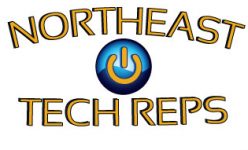Over my years of technical selling, I’ve lived by the philosophy that the gurus promoting “you have to be liked to win the order” were wrong. Now granted you won’t win much business by being insulting, but being best buddies isn’t necessary either.
My thoughts on the matter have always been that you solve the customers issues, treat them fairly and the sale will just happen. No need to push for the order. No need to bring gifts and doughnuts. Just spend the time to understand the customers application challenges and provide a solution that resolves those challenges and bingo the sale is yours. No trial corny closes, scripts, stories required.
In Summary:
- Treat the customer with respect.
- Always do your best to be responsive and work quickly.
- Solve the Problem.
- Physics can’t be changed.
Today I came across an article that confirmed my beliefs. It was published by Harvard Business Review, and is linked for your review. It is titled “Selling is not About Relationships.” In summary it states that of the 5 distinct sales profiles the relationship salesperson ranks dead last in effectiveness. The 5 types are reproduced below.
Quantitatively speaking, just about every B2B sales rep in the world is one of the following types, characterized by a specific set of skills and behaviors that defines the rep’s primary mode of interacting with customers:
- Relationship Builders focus on developing strong personal and professional relationships and advocates across the customer organization. They are generous with their time, strive to meet customers’ every need, and work hard to resolve tensions in the commercial relationship.
- Hard Workers show up early, stay late, and always go the extra mile. They’ll make more calls in an hour and conduct more visits in a week than just about anyone else on the team.
- Lone Wolves are the deeply self-confident, the rule-breaking cowboys of the sales force who do things their way or not at all.
- Reactive Problem Solvers are, from the customers’ standpoint, highly reliable and detail-oriented. They focus on post-sales follow-up, ensuring that service issues related to implementation and execution are addressed quickly and thoroughly.
- Challengers use their deep understanding of their customers’ business to push their thinking and take control of the sales conversation. They’re not afraid to share even potentially controversial views and are assertive — with both their customers and bosses.

